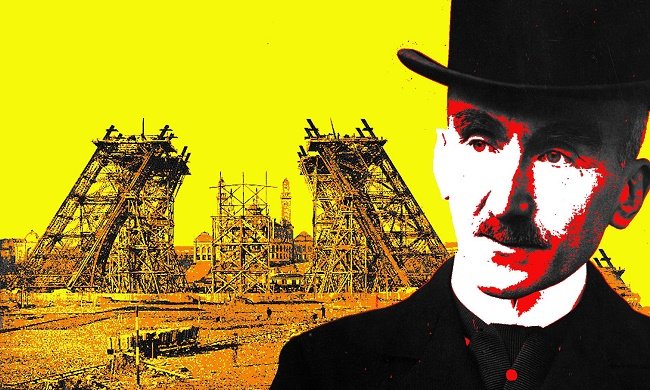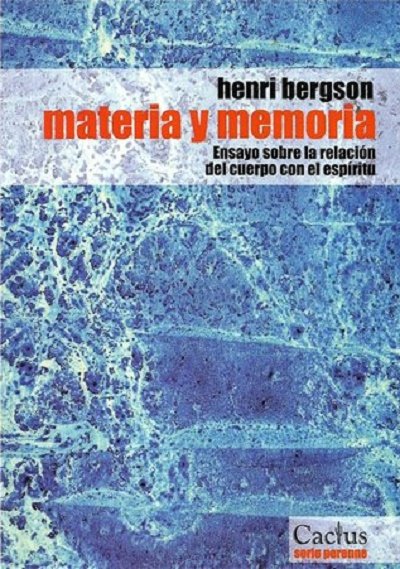Un pensador —filósofo, psicólogo, ensayista— central de la modernidad es Henri Bergson, francés nacido el 18 de octubre de 1859, quien influyera definitoriamente no sólo en la filosofía sino en la literatura y el arte en general. En 1927 recibió el Premio Nobel de Literatura. Pensando en sus aportes, siendo un autor que aprecio mucho, escribí este texto ficcional como si fuera una declaración de Bergson.

Nací en medio del esplendor del racionalismo científico, que tomó forma especial en el positivismo. Si bien me formé en él, algo en mí no lo subscribía completamente. Fui haciéndome una actitud de búsqueda fuera de las explicaciones estrictamente mecánicas, hacia un espíritu libre de tales subordinaciones externas, que la ciencia de entonces aplicaba a todo.
¿Cuál fue mi principio? La conciencia, o el espíritu, como se le dice en francés. Auscultarme a mí mismo, a mi experiencia sensorial y a cómo esta me constituía, me llevó a considerar la memoria. Por eso propuse la noción de memoria vital, que es, antes que nada, individual. Señalé: "La memoria no es una facultad de clasificar los recuerdos en un cajón o de inscribirlos en un registro".
Eso me conducía a una compleja cuestión: el tiempo, asunto al que la filosofía no había abordado decididamente. El tiempo es la materia de la memoria, en tanto que esta es temporalidad en curso, desde un pasado que nos forma cristalizado en presente. Por eso pensé: "¿Qué somos nosotros, qué es nuestro carácter sino la condensación de la historia que hemos vivido desde nuestro nacimiento, antes de nuestro nacimiento incluso (…) es con nuestro pasado todo entero, como deseamos, queremos, actuamos."
A esa temporalidad interior la llamé duración, ese proceso de nuestra conciencia que toma cuerpo en imágenes. Cuando el pasado se actualiza mediante el recuerdo, vive en una imagen.
Quizás la noción que más llenó mi pensamiento, además de la de élan vital, fue la duración. En esto que escribí puede captarse la riqueza de mi aporte: "Busquemos, en lo más hondo de nosotros mismos, el punto en que nos sentimos más interiores a nuestra propia vida. Es en la pura duración donde nos sumimos entonces, una duración en que el pasado, siempre en marcha, se dilata sin cesar en un presente absolutamente nuevo."

Referencia:
Bergson, Henri (1987). Memoria y vida. Textos escogidos. España: Alianza Editorial.







Este post es parte de mi entrada al reto #Hive14Challenge con @hivecreatorsday, con el que espero retomar mi publicación diaria en #Hive.
Click here to read in english
Sources of a vital philosophy (microfiction about Henri Bergson)
Sources of a vital philosophy (microfiction about Henri Bergson)
A central thinker – philosopher, psychologist, essayist – of modernity is Henri Bergson, French born on October 18, 1859, who had a defining influence not only on philosophy but on literature and art in general. In 1927 he received the Nobel Prize for Literature. Thinking about his contributions, being an author that I greatly appreciate, I wrote this fictional text as if it were a statement by Bergson.
I was born in the midst of the splendor of scientific rationalism, which took special form in positivism. Although I was trained in it, something in me did not fully subscribe to it. An attitude of search was developing outside of strictly mechanical explanations, towards a spirit free of such external subordinations that the science of that time applied to everything.
What was my beginning? Consciousness, or spirit, as it is called in French. Listening to myself, to my sensory experience and how it constituted me, led me to consider memory. That is why I proposed the notion of vital memory, which is, above all, individual. I pointed out: "Memory is not a faculty of filing memories into a drawer or inscribing them in a register."
That led me to a complex question: time, a subject that philosophy had not decisively addressed. Time is the material of memory, insofar as it is temporality in progress, from a past that forms us crystallized in the present. That is why I thought: "What are we, what is our character if not the condensation of the history that we have lived since our birth, even before our birth (…) it is with our entire past, how we desire, want, act."
I called this inner temporality duration, this process of our consciousness that takes shape in images. When the past is actualized through memory, it lives in an image.
Perhaps the notion that most filled my thoughts, besides that of vital élan, was duration. In what I wrote, the richness of my contribution can be captured: "Let us seek, in the depths of ourselves, the point at which we feel most internal to our own life. It is in pure duration that we then immerse ourselves, a duration in which the past, always in motion, expands unceasingly into an absolutely new present."